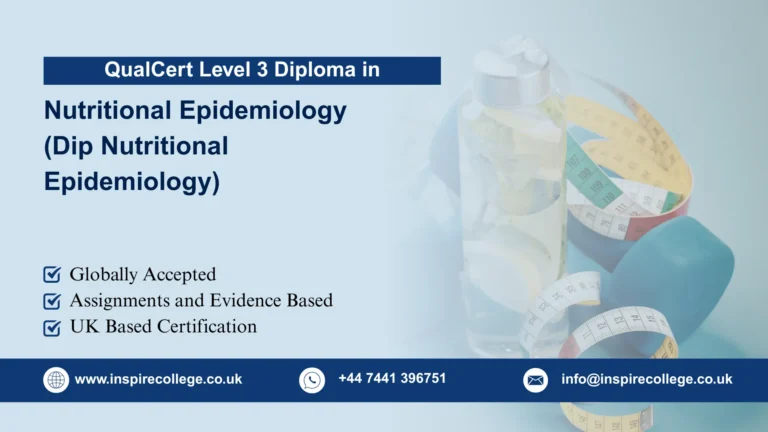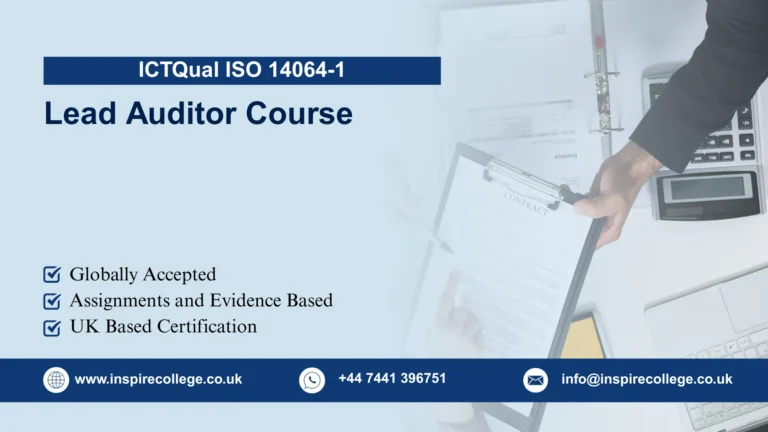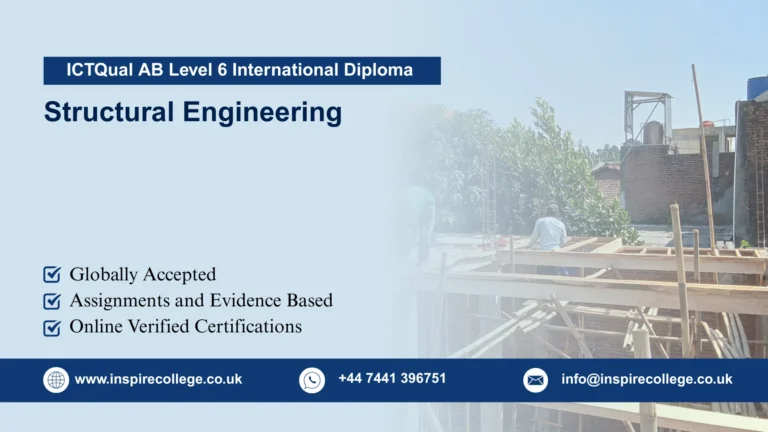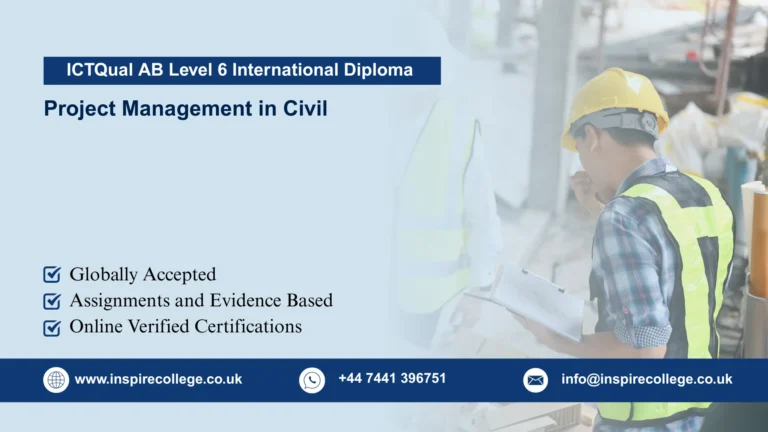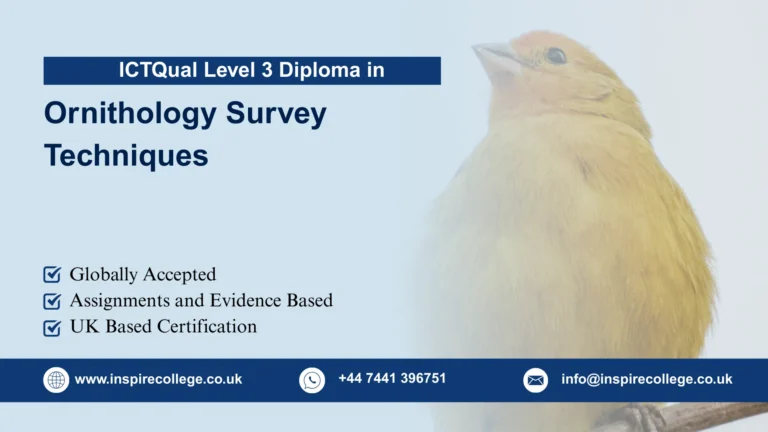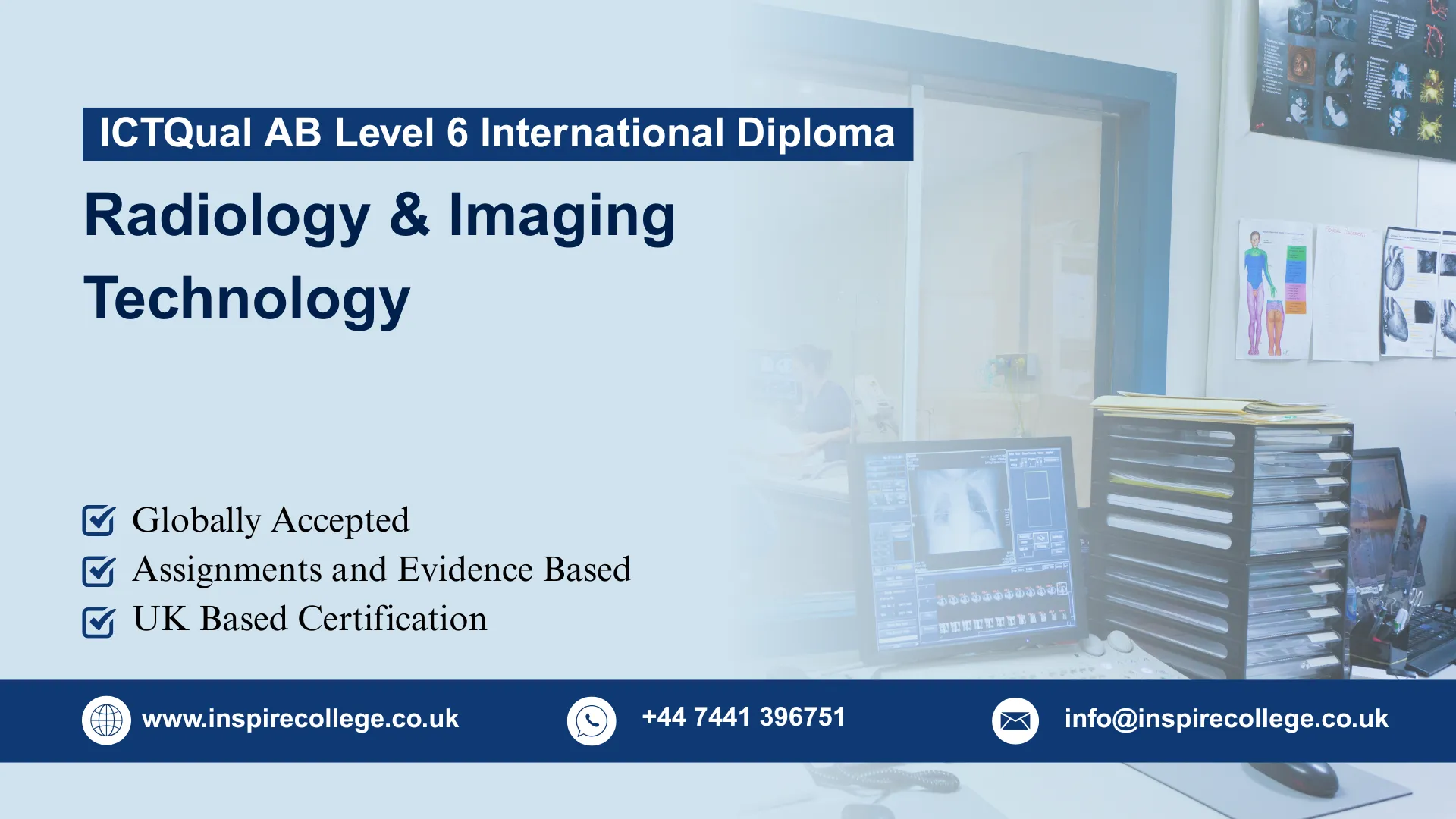
ICTQual AB Level 6 International Diploma in Radiology & Imaging Technology
The ICTQual AB Level 6 International Diploma in Radiology & Imaging Technology is a comprehensive three-year programme (360 credits) designed to prepare learners for a successful career in medical imaging, diagnostics, and healthcare. This internationally recognised qualification blends academic knowledge with practical training, making it ideal for both fresh learners starting their journey in healthcare and experienced professionals looking to enhance their expertise in radiology and imaging.
Throughout the course, learners develop in-depth knowledge of human anatomy, radiographic techniques, medical imaging equipment, radiation safety, and diagnostic interpretation. The programme places a strong emphasis on hands-on learning, enabling students to confidently operate modern imaging technologies such as X-ray, CT, MRI, and ultrasound.
Graduates of this diploma gain the skills required to work across hospitals, diagnostic centres, specialist imaging clinics, and community healthcare organisations worldwide. With radiology and imaging technology playing a vital role in disease detection, treatment planning, and patient care, this qualification provides a strong foundation for those who aspire to contribute meaningfully to global healthcare.
By completing this three-year, 360-credit diploma, learners not only achieve a respected credential but also open doors to diverse career opportunities and further academic progression in radiology, diagnostic imaging, or advanced healthcare studies. With its global relevance and industry-driven curriculum, the ICTQual AB Level 6 Diploma equips learners with the confidence, competence, and professional recognition to thrive in the fast-growing medical imaging sector.
To enrol in the ICTQual AB Level 6 International Diploma in Radiology & Imaging Technology, learners must meet the following requirements:
- Age Requirement: Applicants must be at least 18 years old at the time of admission.
- Educational Background: A recognised secondary school qualification (A-Levels, High School Diploma, or equivalent international qualification) is required. Learners with a Level 5 diploma in healthcare, medical technology, or related fields may also apply for advanced entry.
- Work Experience: While prior work experience in healthcare or imaging is not mandatory, candidates with relevant clinical or vocational exposure may have an added advantage during assessments.
- English Language Proficiency: Since the course is taught in English, learners are expected to demonstrate proficiency through IELTS, TOEFL, or an equivalent qualification (where applicable).
- Additional Requirements: Applicants must demonstrate motivation, commitment to healthcare, and the ability to learn both independently and as part of a team. Some centres may require an interview, supporting documents, or a statement of purpose to assess suitability for the programme.
Mandatory Units
This qualification, the ICTQual AB Level 6 International Diploma in Radiology & Imaging Technology 360 Credits – Three Years, consists of 36 mandatory units.
Year 1: Foundation in Radiology & Imaging Technology
- Introduction to Radiology and Imaging Sciences
- Human Anatomy and Physiology for Imaging
- Principles of Physics in Medical Imaging
- Fundamentals of Radiographic Techniques
- Radiation Safety and Protection
- Introduction to Medical Imaging Modalities
- Patient Care and Communication Skills
- Basic Medical Terminology
- Laboratory Safety and Quality Assurance
- Introduction to Imaging Equipment Operation
- Medical Ethics and Professional Conduct
- Research Methods in Healthcare
Year 2: Intermediate Radiology Applications
- Advanced Radiographic Techniques
- Computed Tomography (CT) Imaging
- Magnetic Resonance Imaging (MRI) Principles
- Ultrasound Imaging Fundamentals
- Nuclear Medicine and Radiopharmacy Basics
- Clinical Radiology and Diagnostic Interpretation
- Imaging Informatics and Digital Systems
- Health and Safety in Imaging Departments
- Patient Assessment and Care in Imaging
- Quality Control and Equipment Maintenance
- Applied Research Methods in Imaging
- Leadership and Teamwork in Radiology Practice
Year 3: Advanced Specialisation and Professional Practice
- Advanced MRI and CT Imaging Techniques
- Interventional Radiology Procedures
- Advanced Ultrasound Applications
- Imaging in Oncology and Cardiology
- Radiology Reporting and Interpretation Skills
- Advanced Radiation Protection Practices
- Biomedical Imaging Technology Integration
- Emerging Trends in Radiology and Imaging
- Clinical Placement / Practical Competency
- Capstone Project / Dissertation in Radiology
- Professional Practice and Reflective Development
- Healthcare Management and Policy in Imaging
Learning Outcomes for the Level 6 International Diploma in Radiology & Imaging Technology 360 Credits – Three Years:
Year 1: Foundational Knowledge
By the end of Year 1, learners will be able to:
Introduction to Radiology and Imaging Sciences
- Understand the principles and scope of radiology and medical imaging.
- Identify different imaging modalities and their clinical applications.
- Recognise the role of imaging in patient diagnosis and treatment planning.
Human Anatomy and Physiology for Imaging
- Demonstrate knowledge of human anatomy relevant to imaging procedures.
- Understand physiological processes that affect imaging outcomes.
- Apply anatomical knowledge in interpreting radiographic images.
Principles of Physics in Medical Imaging
- Explain the physical principles underlying imaging modalities.
- Apply concepts of radiation, energy, and wave propagation to imaging technology.
- Understand factors affecting image quality and safety.
Fundamentals of Radiographic Techniques
- Perform basic radiographic procedures under supervision.
- Understand positioning, exposure, and imaging parameters.
- Apply standard protocols for routine diagnostic imaging.
Radiation Safety and Protection
- Apply principles of radiation protection for patients and staff.
- Understand regulatory and legal frameworks in radiation safety.
- Implement safe practices in imaging environments.
Introduction to Medical Imaging Modalities
- Recognise different imaging modalities and their diagnostic purposes.
- Understand the advantages and limitations of each modality.
- Identify indications for modality selection.
Patient Care and Communication Skills
- Demonstrate effective communication with patients and healthcare teams.
- Apply patient-centred care principles during imaging procedures.
- Address patient concerns and ensure comfort and safety.
Basic Medical Terminology
- Use appropriate terminology for radiology and clinical communication.
- Interpret medical terms in imaging reports and documentation.
- Enhance clarity in professional interactions.
Laboratory Safety and Quality Assurance
- Implement safety protocols in imaging laboratories.
- Understand quality assurance procedures for equipment and procedures.
- Monitor and maintain compliance with safety standards.
Introduction to Imaging Equipment Operation
- Operate basic imaging equipment under supervision.
- Understand equipment functionality and maintenance basics.
- Apply standard procedures for equipment setup and usage.
Medical Ethics and Professional Conduct
- Apply ethical principles in clinical and imaging practice.
- Maintain confidentiality and professional behaviour.
- Understand legal responsibilities in patient care and imaging.
Research Methods in Healthcare
- Understand the fundamentals of healthcare research methodology.
- Design simple research projects relevant to imaging.
- Analyse and interpret basic research findings.
Year 2: Intermediate Proficiency
By the end of Year 2, learners will be able to:
Advanced Radiographic Techniques
- Apply advanced positioning and exposure techniques.
- Interpret intermediate-level radiographic images accurately.
- Follow complex imaging protocols in clinical practice.
Computed Tomography (CT) Imaging
- Understand principles and applications of CT imaging.
- Perform CT procedures safely and accurately.
- Evaluate CT images for diagnostic purposes.
Magnetic Resonance Imaging (MRI) Principles
- Explain MRI physics and image formation.
- Conduct MRI procedures following safety guidelines.
- Recognise normal and abnormal imaging findings.
Ultrasound Imaging Fundamentals
- Perform basic ultrasound imaging procedures.
- Understand ultrasound physics and Doppler principles.
- Interpret ultrasound images in clinical contexts.
Nuclear Medicine and Radiopharmacy Basics
- Understand the use of radiopharmaceuticals in imaging.
- Apply safety measures in handling radioactive substances.
- Recognise clinical applications of nuclear medicine techniques.
Clinical Radiology and Diagnostic Interpretation
- Analyse images from multiple modalities for diagnosis.
- Correlate imaging findings with patient history and clinical data.
- Report findings effectively to healthcare teams.
Imaging Informatics and Digital Systems
- Use digital imaging systems, PACS, and EMRs effectively.
- Understand data storage, retrieval, and security in imaging.
- Apply informatics for efficient clinical workflow.
Health and Safety in Imaging Departments
- Implement department-wide safety protocols.
- Monitor and manage hazards in imaging settings.
- Ensure compliance with health and safety regulations.
Patient Assessment and Care in Imaging
- Conduct pre-imaging assessments and screening.
- Provide patient support during complex procedures.
- Address patient needs in high-stress or emergency settings.
Quality Control and Equipment Maintenance
- Perform routine quality control checks on imaging equipment.
- Identify and troubleshoot common equipment issues.
- Ensure optimal performance and compliance with standards.
Applied Research Methods in Imaging
- Design and conduct applied research projects in imaging.
- Collect, analyse, and interpret clinical imaging data.
- Present research findings in written and oral formats.
Leadership and Teamwork in Radiology Practice
- Demonstrate leadership in clinical imaging teams.
- Collaborate effectively with multidisciplinary healthcare teams.
- Develop strategies for efficient workflow and problem-solving.
Year 3: Advanced Specialization and Application
By the end of Year 3, learners will be able to:
Advanced MRI and CT Imaging Techniques
- Conduct advanced imaging procedures with high accuracy.
- Optimise imaging protocols for complex clinical cases.
- Evaluate image quality and adjust techniques as required.
Interventional Radiology Procedures
- Assist in minimally invasive radiology procedures.
- Understand indications, techniques, and patient care requirements.
- Maintain safety standards during interventional procedures.
Advanced Ultrasound Applications
- Perform specialised ultrasound scans (e.g., obstetric, vascular).
- Interpret findings for complex clinical cases.
- Apply advanced imaging protocols and patient positioning.
Imaging in Oncology and Cardiology
- Recognise imaging applications in cancer and heart disease.
- Conduct imaging procedures for oncology and cardiac patients.
- Interpret diagnostic results for clinical decision-making.
Radiology Reporting and Interpretation Skills
- Produce accurate and professional radiology reports.
- Correlate imaging findings with clinical history.
- Communicate findings clearly to healthcare teams.
Advanced Radiation Protection Practices
- Apply advanced techniques to minimise patient and staff exposure.
- Implement safety protocols for high-dose procedures.
- Monitor compliance with regulatory standards.
Biomedical Imaging Technology Integration
- Integrate multiple imaging modalities for diagnosis.
- Understand emerging imaging technologies and applications.
- Apply technology effectively in clinical workflows.
Emerging Trends in Radiology and Imaging
- Stay updated with innovations in imaging technology.
- Analyse emerging trends for potential clinical applications.
- Adapt professional practice to evolving industry standards.
Clinical Placement / Practical Competency
- Gain hands-on experience in hospital or imaging departments.
- Demonstrate practical competence in real-world settings.
- Apply theoretical knowledge to patient care and imaging procedures.
Capstone Project / Dissertation in Radiology
- Conduct an independent research project or case study.
- Analyse data, draw conclusions, and present findings professionally.
- Contribute to the field of radiology through applied research.
Professional Practice and Reflective Development
- Reflect on clinical experiences to enhance professional growth.
- Develop strategies for continuous improvement and lifelong learning.
- Maintain professional standards and ethical conduct.
Healthcare Management and Policy in Imaging
- Understand management principles in radiology departments.
- Apply policy frameworks to improve service delivery.
- Lead initiatives for quality improvement and operational efficiency.
The ICTQual AB Level 6 International Diploma in Radiology & Imaging Technology is a comprehensive three-year, 360-credit programme created for learners from different educational and professional backgrounds. It is tailored to those who aspire to start or advance their careers in medical imaging, diagnostic radiology, and healthcare services. With its international recognition, the diploma opens opportunities for learners worldwide to build a rewarding and future-ready career in this critical sector.
1. Fresh School Leavers
- Designed for learners who have just completed their secondary education and are ready to pursue a career in healthcare.
- Offers a structured entry into the radiology field, beginning with strong academic foundations in anatomy, physiology, and imaging science.
- Provides hands-on training in medical imaging equipment, preparing learners for real-world diagnostic practices.
- Equips fresh learners with the skills and confidence to take their first step into a healthcare profession that is in high global demand.
2. Aspiring Healthcare Professionals
- Suitable for individuals aiming to enter the healthcare sector with a specialised qualification in radiology and imaging technology.
- Offers practical and career-focused learning, making graduates employable in hospitals, diagnostic centres, community clinics, and specialist imaging units.
- Prepares learners to meet the professional standards expected in modern healthcare systems across the globe.
3. Current Healthcare Practitioners
- Ideal for nurses, medical assistants, or allied health professionals who want to specialise in diagnostic imaging or gain advanced technical expertise.
- Provides a career-enhancing qualification that allows professionals to move into higher-level imaging roles such as radiographers or imaging technologists.
- Supports professional development by adding advanced imaging and diagnostic skills to an existing healthcare background.
4. International Learners
- Attracts students worldwide seeking a diploma with global recognition and international career mobility.
- Builds essential cross-cultural communication and adaptability skills, enabling learners to work in diverse healthcare systems.
- Offers international relevance, ensuring graduates are equipped for roles in hospitals, imaging centres, and research institutions globally.
5. Career Changers
- Designed for individuals from non-medical fields who are passionate about healthcare and want to transition into a stable, impactful profession.
- Offers a clear and structured pathway into the healthcare industry, supported by academic and practical training.
- Opens opportunities to make a meaningful contribution to patient care through diagnostic imaging.
Why This Diploma is Ideal
This programme is particularly suitable for learners who wish to:
- Acquire specialised expertise in radiology and imaging technologies such as X-ray, MRI, CT, and ultrasound.
- Develop clinical competence, professional confidence, and recognition in the medical diagnostics field.
- Access global career opportunities across hospitals, clinics, diagnostic centres, and healthcare organisations.
- Progress into advanced academic study in radiology, diagnostic imaging, or healthcare management.
By completing this three-year, 360-credit diploma, learners not only gain a respected international qualification but also acquire the skills, knowledge, and adaptability required to thrive in the rapidly advancing radiology and imaging sector.
As an ICTQual AB Approved Training Centre, we provide learners with two flexible pathways to achieve the Level 6 International Diploma in Radiology & Imaging Technology. All learners must enrol with our centre to register, access course materials, and receive academic and professional guidance.
Route 1 – Experienced Professionals
- Designed for learners with a minimum of 6 years of verifiable professional experience in radiology, diagnostic imaging, or related healthcare fields.
- Candidates are required to submit documented evidence of prior work, including imaging projects, use of diagnostic equipment, patient case management, and compliance with radiation safety protocols.
- Our centre evaluates the learner’s knowledge and competencies against the diploma’s learning outcomes and industry standards.
- If skill gaps are identified, learners receive targeted guidance or additional training to bridge them.
- Once verification is successful, candidates are awarded the ICTQual AB Level 6 International Diploma in Radiology & Imaging Technology without the need to complete all 36 assignments, allowing for fast-track certification and recognition of prior expertise.
Route 2 – Fresh Learner
- Designed for individuals with no prior professional experience in radiology or imaging.
- Learners must complete the full three-year, 360-credit programme, including 36 assignments, case studies, and practical assessments.
- Assessments are structured to ensure mastery of both theoretical knowledge and the practical application of imaging technologies such as X-ray, CT, MRI, and ultrasound.
- Upon successful completion, learners are awarded the ICTQual AB Level 6 International Diploma in Radiology & Imaging Technology, gaining a strong foundation for global careers in diagnostic imaging and healthcare.
Both certification routes offer a globally recognised and industry-relevant qualification, enabling learners to either validate their professional experience or build comprehensive expertise to advance their careers in the radiology and medical imaging sector.
Register Now
FAQs for ICTQual AB Level 6 International Diploma in Radiology & Imaging Technology


